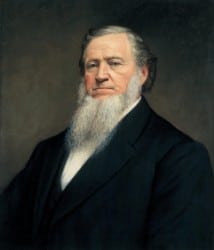
If we speak of faith in the abstract, it is the power of God by which the worlds are and were made, and is a gift of God to those who believe and obey his commandments.
| Journal of Discourses, 8:259
LDS Quotes on Faith

If we speak of faith in the abstract, it is the power of God by which the worlds are and were made, and is a gift of God to those who believe and obey his commandments.
| Journal of Discourses, 8:259
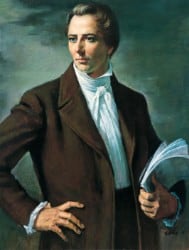
Whatever God requires is right, no matter what it is, although we may not see the reason there of until all of the events transpire.
| History, 1838–1856, volume D-1 [1 August 1842–1 July 1843]
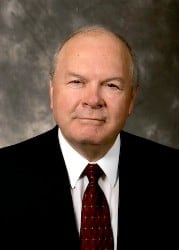
“We exercise appropriate faith in our Master by involving ourselves in the work of the Master”
| By Grace Are We Saved. Salt Lake City: Bookcraft, 1989.
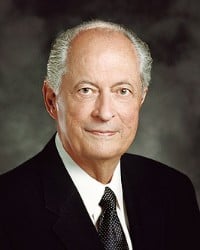
“Faith in the Lord Jesus Christ is the first principle of the gospel and the cornerstone of our eternal salvation. As we exercise our faith in our Savior and apply His teachings in our life, we will be strengthened and we will not fear the world or heed its enticements.”
| Seek and Attain the Spiritual High Ground in Life, 1 March 2009 BYU Speech

When the challenges of mortality come, and they come for all of us, it may seem hard to have faith and hard to believe. At these times only faith in the Lord Jesus Christ and His Atonement can bring us peace, hope, and understanding. Only faith that He suffered for our sakes will give us the strength to endure to the end. When we gain this faith, we experience a mighty change of heart, and like Enos, we become stronger and begin to feel a desire for the welfare of our brothers and sisters. We pray for them, that they too will be lifted and strengthened through faith on the Atonement of our Savior Jesus Christ.
| “Finding Faith in the Lord Jesus Christ,” Ensign, Nov. 2004, p. 7
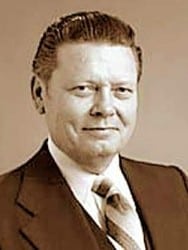
The main test of life on earth is to see if a person – not remembering the premortal existence with Heavenly Father and not being able to prove His existence by material evidence – will still have faith in God, trust Him, and obey His commandments, no matter the hazard or sacrifice that may be required.
| Sidney B. Sperry Symposium at BYU, 1991
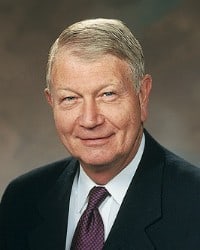
Because of the conflicts and challenges we face in today’s world, I wish to suggest a single choice – a choice of peace and protection and a choice that is appropriate for all. That choice is faith. Be aware that faith is not a free gift given without thought, desire, or effort. It does not come as the dew falls from heaven. The Savior said, “Come unto me” (Matthew 11:28) and “Knock, and it shall be [given] you” (Matthew 7:7). These are action verbs – come, knock. They are choices. So I say, choose faith. Choose faith over doubt, choose faith over fear, choose faith over the unknown and the unseen, and choose faith over pessimism. Alma’s classic discussion on faith, as recorded in the 32nd chapter of Alma in the Book of Mormon, is a series of choices to ensure the development and the preservation of our faith. Alma gave us a directive to choose. His were words of action initiated by choosing. He used the words awake, arouse, experiment, exercise, desire, work, and plant. Then Alma explained that if we make these choices and do not cast the seed out by unbelief, then “it will begin to swell within [our] breasts” (Alma 32:28). Yes, faith is a choice, and it must be sought after and developed. Thus, we are responsible for our own faith. We are also responsible for our lack of faith. The choice is yours.
| October 2010 General Conference

Lucy Mack Smith, mother of the Prophet, was asked to take charge of the exodus of the members from Fayette [May 1831]. When they arrived at Buffalo, New York, they found that the harbor on Lake Erie was clogged with an ice field, and the steamboat carrying the Fayette Saints was unable to leave port. In this difficult situation, she called upon the members to exercise their faith: “Now, brethren and sisters, if you will all of you raise your desires to heaven, that the ice may be broken up, and we be set at liberty, as sure as the Lord lives, it will be done.” At that very moment a noise was heard “like bursting thunder.” The ice parted and a narrow passage formed through which the boat was able to move. They had barely passed through when the avenue again closed, but they were in open water and could continue their journey. Following this miraculous escape, the company was called together in a prayer meeting to offer up their thanks to God for his mercy on their behalf. (Lucy Mack Smith, History of the Church, 240)
| Our Heritage, a Brief History of The Church of Jesus Christ of Latter-day Saints, p. 19
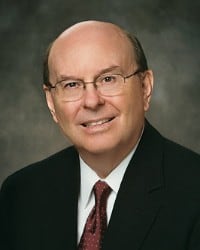
“It is our faith in Jesus Christ that sustains us at the crossroads of life’s journey. It is the first principle of the gospel. Without it we will spin our wheels at the intersection, spending our precious time but getting nowhere. It is Christ who offers the invitation to follow Him, to give Him our burden, and to carry His yoke, “for [His] yoke is easy, and [His] burden is light” (Matthew 11:30). There is no other name under heaven whereby man can be saved (see Acts 4:12). We must take upon us His name and receive His image in our countenance so that when He comes we will be more like Him (see 1 John 3:2; Alma 5:14). When we choose to follow Christ in faith rather than choosing another path out of fear, we are blessed with a consequence that is consistent with our choice (see D&C 6:34–36).”
| Live By Faith and Not By Fear, October 2007 General Conference
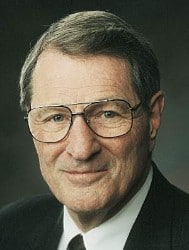
“Many in the world hold back from making the ‘leap of faith’ because they have already jumped to some other conclusions — often the conclusions of Korihor, which are: God never was nor ever will be; there is not a redeeming Christ; man cannot know the future; man cannot know of that which he cannot see; whatsoever a man does is no crime; and death is the end. (See Alma 30:13-18.) The number of modern-day adherents to the Korihor conclusions will grow.”
| “The Inexhaustible Gospel,” Ensign, April 1993, p. 71